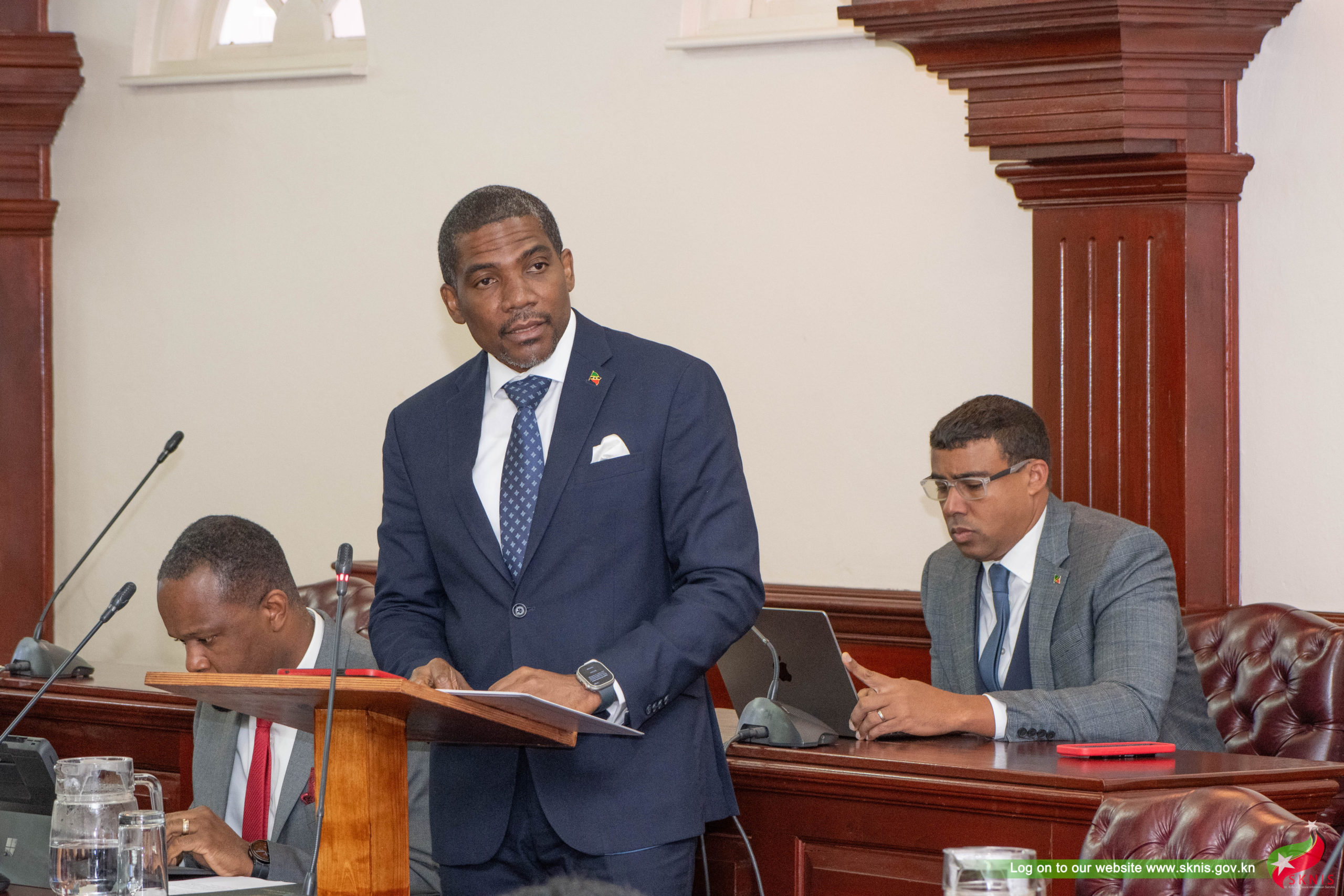Saint Kitts and Nevis Enhances Penalties for Armed Robbery Through Larceny Act Amendment
The government of Saint Kitts and Nevis, under the leadership of Prime Minister Dr. Terrance Drew, has enacted the Larceny (Amendment) Bill, 2025, a significant piece of legislation designed to address sentencing disparities and bolster public safety. The amendment rectifies a prior legal contradiction where the penalty for possessing an unlicensed automatic firearm was more severe than using the same weapon in a robbery. This anomaly, which allowed for a sentence of up to 40 years for possession versus a maximum of 20 years for armed robbery, is now corrected, ensuring that the justice system adequately addresses the gravity of firearm-related robberies. The amendment aligns sentencing with the recently reformed Firearms Act, solidifying the government’s commitment to a robust and logical legal framework.
The Larceny (Amendment) Bill, 2025, introduces a tiered sentencing structure for robbery offenses, reflecting the varying degrees of threat and violence involved. Robbery with a firearm now carries a maximum penalty of life imprisonment with hard labor, the most severe punishment under the amended legislation. This reflects the government’s recognition of the inherent danger posed by firearm-related crimes and the need for strong deterrents. Other categories of robbery, such as those involving other offensive weapons, accomplices, or personal violence, also face increased penalties, ranging from 40 years to 30 years imprisonment. Robbery without aggravating factors retains a maximum sentence of 20 years, while assault with intent to rob carries a maximum of 15 years. This tiered system allows for a more nuanced approach to sentencing, ensuring that the punishment fits the crime.
The bill expands the definition of “firearm” to encompass imitation firearms and other restricted or prohibited weapons, mirroring the updated Firearms Act. This comprehensive definition eliminates potential loopholes and strengthens the legal framework surrounding weapon-related offenses. By including imitation firearms, the law acknowledges the potential for these weapons to be used in intimidating and threatening ways, even if they lack the lethal capacity of actual firearms. This amendment reinforces the government’s commitment to addressing all forms of weapon-related crime.
Prime Minister Drew emphasized that the amendment harmonizes Saint Kitts and Nevis’ legal framework with regional and international norms, while adhering to guidelines from the Eastern Caribbean Supreme Court. This alignment ensures that the nation’s laws reflect best practices and are consistent with broader legal principles within the region and beyond. It also demonstrates the government’s commitment to upholding the rule of law and maintaining a just and equitable legal system. The alignment with regional and international standards enhances the credibility of the legislative changes and reinforces their effectiveness in deterring crime.
The prime minister underscored the impact of robbery on individuals and communities, highlighting the need for strong deterrents to protect public safety and maintain social order. He stressed that robbery is not a victimless crime, as it can cause significant psychological trauma, erode community trust, and instill fear. Increasing penalties for armed robbery serves as a clear message that such acts of violence will not be tolerated. The emphasis on deterrence aims to prevent future crimes by making the potential consequences more severe.
Beyond punitive measures, Prime Minister Drew reiterated the government’s commitment to a holistic approach to crime reduction. This comprehensive strategy includes preventative measures, creating opportunities for at-risk individuals, and addressing the root causes of violence through a public health lens. This multifaceted approach recognizes that effective crime reduction requires addressing the underlying social and economic factors that contribute to criminal activity. By focusing on prevention and opportunity creation, the government aims to address the root causes of crime and build safer, more resilient communities. This comprehensive approach indicates a commitment to long-term solutions, rather than solely relying on punitive measures.
The Larceny (Amendment) Bill, 2025, represents a decisive step towards strengthening the justice system, deterring crime, and building a safer Saint Kitts and Nevis. By addressing sentencing inconsistencies, expanding the definition of firearms, and aligning with regional and international standards, the government demonstrates its commitment to public safety and a just society. This amendment, combined with the government’s broader crime reduction strategy, aims to create a safer and more secure environment for all citizens. The legislation seeks to balance firm penalties with a broader societal approach to tackling crime, recognizing the complexity of the issue and the need for multi-faceted solutions.
Share this content:










Post Comment